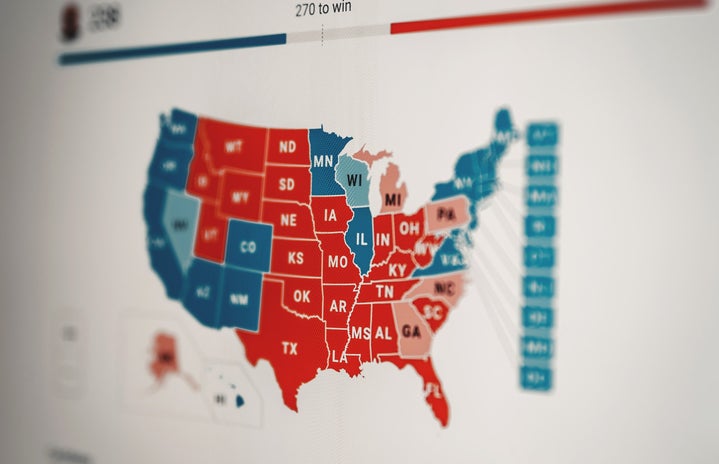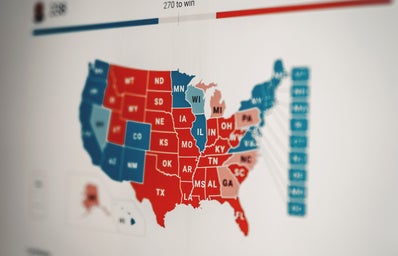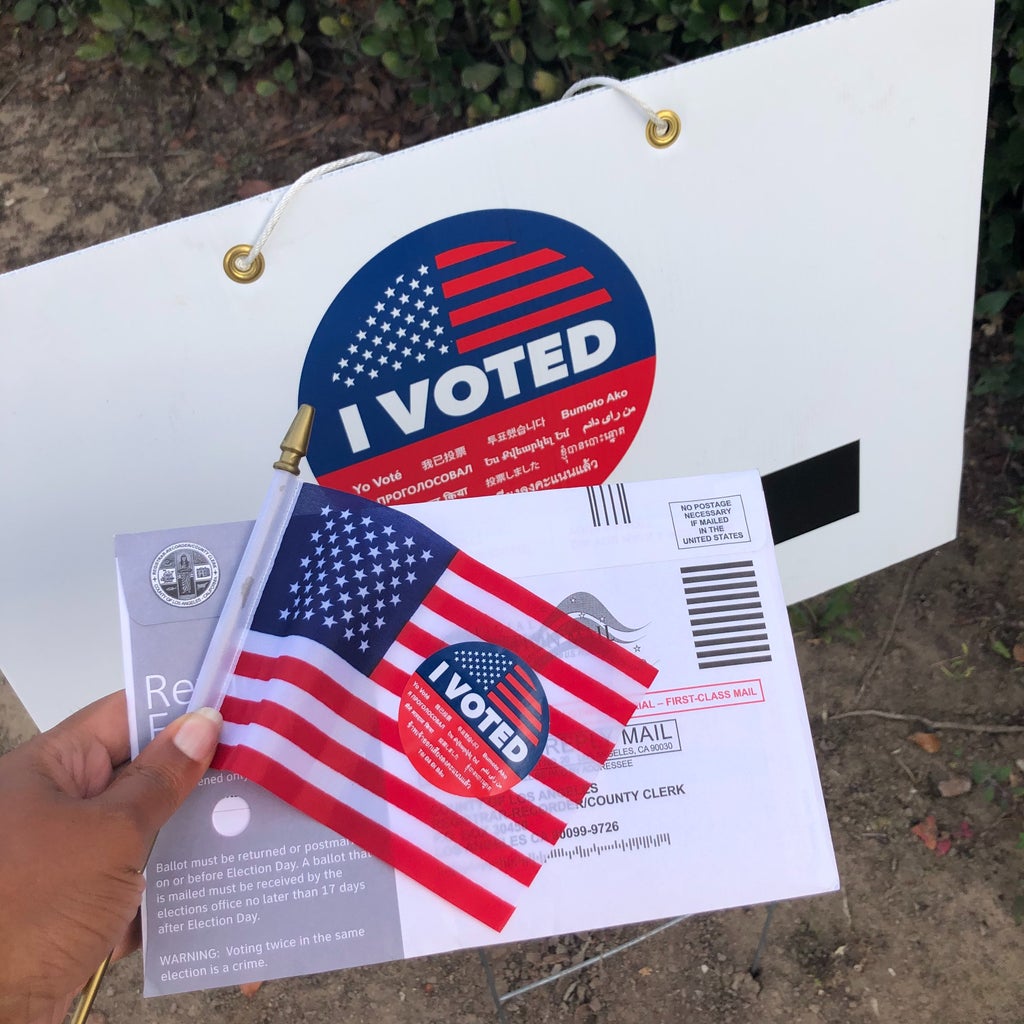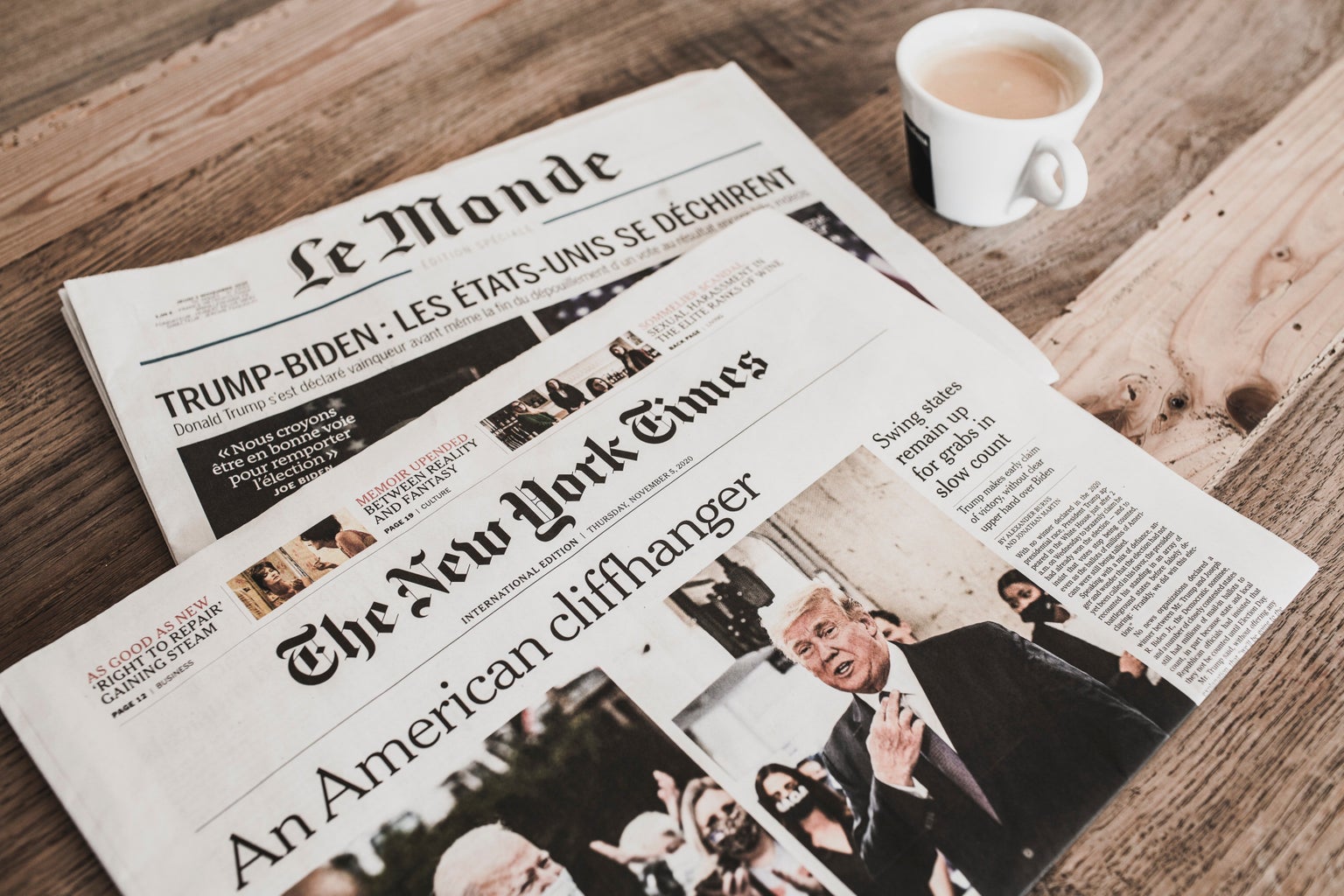The Tide is Turning:
This year’s election results have had many Kamala and third party supporters asking the same question; how could Americans re-elect a man with 34 felony counts, 6 bankruptcies and the incitement of an insurrection under his belt? In an era of rapid globalization, misinformation and political polarization it would seem that Donald Trump, a man who thrived on the bigotry of his supporters during his first term as president, would be the last person Americans would want in office.
However, rather than distance themselves from one of the world’s most insidious political figures, voters seem to be more captivated by Trump than ever. Trump’s antagonistic personality has even led some former democratic voters right into his thoroughly spray-tanned arms. It appears that many Americans have grown frustrated, at times angry with the Democratic party, which arguably cares less about disenfranchised peoples than most liberal politicians would like citizens to think.
Many Americans still deal with the same fears as they did when Obama was president, whether that be unemployment, systematic discrimination in and outside of the workplace, or an inability to afford basic necessities such as housing and electricity. Inflation as a result of the 2020 pandemic has only heightened the pressure on people dealing with these constant concerns and has added to a crisis of mental health in the U.S. Sides, Tesler, and Vavreck write in their book Identity Crisis: The 2016 Presidential Campaign and the Battle for the Meaning of America that “across established democracies, the longer a party has been in power, the less likely citizens are to vote for its candidates” (Sides, Tesler, and Vavreck, “Fayetteville”). It is clear from the results of this year’s election that the tide is certainly turning for both the democratic party and many outspoken voters, who feel that their needs are left unmet and that they are being completely and utterly ignored.
United Through Fear…and Race:
It is more than safe to say that many Trump supporters feel, to one degree or another, a psychological attachment to the future incumbent. Part of this attachment comes from Trump’s unabashed commentary on racially charged issues. John Sides, Michael Tesler, and Lynn Vavreck write in “Fayetteville”, “Under Obama, white Americans’ feelings about blacks became associated with many things, including whether and how they felt about the economy. ‘Racial anxiety ‘ was arguably driving economic anxiety.” (Sides, Tesler, and Vavreck, “Fayetteville”,) Obama’s historical presidency in the U.S. proved a shift in an immense power once held solely by older white men, a shift not just confined to the states but also one that occurred through technological advancement, spurring economic growth in developing countries.
Trump capitalized on majority white fears surrounding this shift, his anti-immigration rhetoric being both infamous and the catalyst to his gaining further patronage. Most people who agreed that the US should spend billions to “build the wall” also believed that immigrants were taking their jobs, and were at fault for the cycles of poverty that persisted in many American households. People – specifically white people – cared more about economic instabilities when they were spoken about through a racialized lens. Trump targeted and still targets less educated white voters who, due to a flawed school system, grew up fearing the unknown (cultures that differed from their own) as well as the loss of their inherited privilege (Sides, Tesler and Lynn, “Fayetteville”). A white identity crisis in a growing economy changed the trajectory of both the 2016 election and the 2024 election. Many voters who once held more moderate stances on religion and race, became radicalized with a push from a power-hungry Trump. Trump is dangerous not just because he motivates white people, but people of all demographics to see the world outside of the US as hazardous.
In the end, many white voters, even those who supported Obama in past elections, were not safe from feeling unreciprocated understanding or kinship between themselves and Donald Trump. A kinship that Kamala could never have manufactured, even if she tried.
United Through Fear…and Gender:
During the 2016 presidential campaigns, gender consciousness played a big role in who Americans decided to vote for and who they didn’t. In Sides’ “Cracks in the Ceiling” he states that “The negative consequence of Clinton’s gender was visible.” (Sides, Tesler and Vavreck, “Cracks in the Ceiling”) Hillary Clinton, who emphasized her identity as a woman in politics during her campaign, lost the support of mostly male voters, some of whom were left-leaning, due to their “sexist attitudes” and their disposition towards heteronormative gender roles (Sides, Tesler and Vavreck,“Cracks in the Ceiling” ).
Many male Bernie Sanders supporters despised Clinton even though a number of their policy positions had a substantial overlap. Some of these men may have found solace in Bernie’s thin veneer of anti-establishment, which would later translate to a similar solace in Trump’s own unconventional heroics around American politics. Sides explains that “Gender consciousness has not typically been a substantial force in modern American political behavior”(Sides, Tesler and Vavreck, “Cracks in the Ceiling”). Hillary was accused during her campaign of playing the woman card by both Trump and his followers, which is perhaps why Kamala Harris downplayed her gender during her own candidacy this year.
However, even if a female politician were to entirely disregard her gender, it would not stop misogynistic voters from discounting her. This applies to all voters, whether they are left-leaning, right-leaning, or somewhere in the middle. When Biden, who has run for president many times in the past, faced off with Trump in the 2020 election, he won, with little to no surprise from Americans at the time. When Hillary ran against Trump in the 2016 election and Kamala ran against Trump in the 2020 election Trump won both times, even though both of these women had achieved incredible success through their political careers and were just as ambitious as Biden and Trump were.
Again, this is a matter of control, as a great number of men fear that they will lose what is ultimately unchecked power in order for women to gain any themselves. Many female voters don’t align themselves with feminist ideology either, preferring to keep the same Western gender roles that have existed for centuries inside and outside of their personal lives. Sides writes that voters tend to align themselves more with racial identities, as we see in the case of Trump, than they do with gender identities (Sides, Tesler and Vavreck, “Cracks in the Ceiling”).
Education and the Economy:
Martha Nussbaum writes in her book “Not For Profit: Why Democracy Needs the Humanities” that Critical thinking will, then, be discouraged if everyone wants to create obedient citizens (Nussbaum,“Not For Profit”). For decades, the United States public school system taught its students how to build a wealthier economy, whether that be by teaching nationalistic propaganda or ignoring the arts in favor of STEM programs that will help Americans compete with Tiger economies. As an American with dual citizenship, I have witnessed firsthand how the U.S. government has allowed a system of education to continue without teaching students to explore other cultures and religions and to become equipped with the mental, emotional tools required to see when they are being fear-mongested.
For this reason, many Americans do not think to condemn Trump’s prejudice but rather see it as justifiable under the economic hardship in their country. Trump supporters, whether they were always right-wing, or are newly radicalized, are united by their hatred or indifference towards certain religions, mainly the Muslim religion, and foreign people of color. There are several ways that schools can tackle this issue. Martha describes how we can teach people to see immigrants not just as a faceless mass but as people deserving of basic human rights, who are just as, if not far more, disenfranchised as many American citizens. Students should be learning more about other religions and other cultures in school too so that people’s lack of knowledge doesn’t turn into fear or hate. If people do not learn how to become open-minded, empathetic critical thinkers as they develop, it will make them more susceptible to corruption later on in life (Nussbaum, “Not For Profit”).
An All-American Identity Crisis:
Both past Democratic and Republican voters alike supported Trump in this year’s election in part because Trump promises an idealistic version of America, mostly for conservative male communities. During a time in which most Americans no longer have a clear understanding of what it means, looks and sounds like to be an American citizen, Trump paints a dazzlingly alabaster picture. Trump wants to “Make America Great Again”. He wants to build a country in which women are controlled, white men are further empowered and more money is poured into the grimy hands of the 1%. Not necessarily because he believes this is the right thing to do but because he panders to an audience, an easy target, that does. In a speech in Fayetteville during his 2016 campaign, Trump appeared to justify violence against protesters who detested his promotion of bigoted ideologies, agreeing with supporters stated that protesters were acting “un-American” (Sides, Tesler and Vavreck, “Fayetteville”). In Donald Trump’s America, only a few groups are allocated autonomy and only a few groups are allocated their natural rights.
When Biden or Obama couldn’t produce this idea of a perfect America people turned on them.
Leo Glasgow, a columnist at the Cornell Daily Sun and a former student at my alma mater, Laguardia High School of Performing Arts, wrote in his article, “As an Independent, I’m Voting for Trump”. He wrote that he was supporting a candidate who he viewed as “America personified.” Glasgow, a once avid supporter of the Biden-Harris campaign, wrote in the beginning of his article that he “fully believed that Biden was the solution to all of my problems and that Trump was the origin of them” (Glasgow, “The Cornell Daily Sun”). What Glasgow and other newly radicalized voters fail to consider is that putting all your faith into a broken system will never yield positive results. Everyday people know that they will never achieve a perfect America in which they are given all the privilege and all the attention they feel they deserve under Biden or Obama, but they will also never come close to achieving this same privilege under Donald Trump. No matter what lie he decides to tell them.
In a Time’s article entitled, “Voices from Democratic Counties Where Trump Won Big” authors Elizabeth Dias, Haley Sweetland and Edward and Karl Vick interviewed the former mayor of Nanticoke, PA, Joseph Dougherty, a lifelong Democrat turned ‘Trumper’. Dougherty is quoted saying he views Donald Trump as an advocate for “hard-working, blue collar workers looking for family-sustaining jobs.” Moreover, Dougherty is quoted saying “We didn’t leave the Democratic Party. The Democratic Party left us” (Staff, “Time”). It is possible that for voters like Leo or Dougherty that Trump will find a way to ease their frustrations with the current state of the nation. It’s possible, but not very likely, as Trump continues to alienate America from the rest of the world.
Josh Boak writes for The Associated Press that Donald Trump’s “tax cuts never delivered the promised growth. His budget deficits surged and then stayed relatively high under Biden. His tariffs and trade deals never brought back all of the lost factory jobs. And there was the pandemic, an event that caused historic job losses for which Trump accepts no responsibility as well as low inflation — for which Trump takes full credit…When Trump celebrates historically low mortgage rates, he’s doing so because the economy was weakened by the pandemic. Similarly, gasoline prices fell below an average of $2 a gallon because no one was driving in April 2020 as the pandemic spread” (Boak, The Associated Press). Perhaps Trump didn’t destroy the American economy in his first term, but from his past bankruptcies to his inability to produce growth, it is safe to say he is nowhere near the president, or the business man, he claims to be.
My personal hope is that Trump will not be responsible for the downfall of a powerful and influential country. I’m not just worried about the future consequences on Canada, I’m also concerned for my family and many of my friends who are currently living in the U.S. I think we can only hope that people will continue to question Trump the way they questioned Kamala, and that the future that lies ahead for the U.S. does not grow too grim.
Sources:
- Sides, J., Tesler, M., & Vavreck, L. (n.d.). CHAPTER 1 Fayetteville. In Identity Crisis: The 2016 Presidential Campaign and the Battle for the Meaning of America (2018th ed., pp. 1–11). essay, Princeton University Press. Retrieved 2024, from https://www.jstor.org/stable/j.ctvktrvp5.4?seq=1#metadata_info_tab_contents
- Sides, J., Tesler, M., & Vavreck, L. (n.d.). CHAPTER 2 Whaddaya Got? In Identity Crisis: The 2016 Presidential Campaign and the Battle for the Meaning of America (2018th ed., pp. 1–11). essay, Princeton University Press. Retrieved 2024, from https://www.jstor.org/stable/j.ctvktrvp5.4?seq=1#metadata_info_tab_contents
- Sides, J., Tesler, M., & Vavreck, L. (n.d.). CHAPTER 6 Cracks in the Ceiling. In Identity Crisis: The 2016 Presidential Campaign and the Battle for the Meaning of America (2018th ed., pp. 1–11). essay, Princeton University Press. Retrieved 2024, from https://www.jstor.org/stable/j.ctvktrvp5.4?seq=1#metadata_info_tab_contents
- Sides, J., Tesler, M., & Vavreck, L. (n.d.). CHAPTER 8 What Happened? In Identity Crisis: The 2016 Presidential Campaign and the Battle for the Meaning of America (2018th ed., pp. 1–11). essay, Princeton University Press. Retrieved 2024, from https://www.jstor.org/stable/j.ctvktrvp5.4?seq=1#metadata_info_tab_contents
- Nussbaum, M. C. (2011). Not for profit: why democracy needs the humanities. Choice Reviews Online, 48(06), 48–3075. https://doi.org/10.5860/choice.48-3075
- Glasgow, L., & Glasgow, L. (2024, September 4). GLASGOW | As an independent, I’m voting for Trump – The Cornell Daily Sun. The Cornell Daily Sun – Independent Since 1880.https://cornellsun.com/2024/01/22/glasgow-as-an-independent-im-voting-for-trum/
- Staff, T. (2016, December 8). Voices from Democratic Counties Where Trump Won Big. TIME.com. https://time.com/voices-from-democratic-counties-where-trump-won-big/
- Boak, J. (2024, May 20). Trump’s economy record exposes a complicated reality during presidency | AP News. AP News. https://apnews.com/article/trump-economy-biden-election-president-e3a153c9b0c615ea6e0f2afb91cdc785







